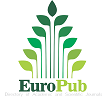Peer Review
The arbitration system of the journal “Apuntes de Bioética” operates under the peer review policy carried out by experts on the subject. The review is carried out under the double-blind peer review modality, which means that the identity of both the author and the reviewer is kept hidden. If the reviewer does not know the identity of the authors, it will prevent the reviewer from forming biases.
The peer review provided by the Editorial Committee seeks to guarantee the quality of the articles that are published. The reviewers can be national or foreign, who are 100% external to the Publisher, and are selected according to their expertise on the subject, proven through their publications and academic level. In the event that the reviewer reports any type of conflict of interest, the editorial committee reserves the right to exempt the reviewer from the evaluation of the article.
Manuscripts sent for review will be confidential during the process; That is why the reviewer will not be able to disseminate, comment or use the information included therein.
Review criteria include:
-
Overall quality and academic standards;
-
Originality and relevance, works of theoretical and practical interest that are useful, both in the academic and professional fields, for their contribution to scientific knowledge or good practices in the field of bioethics;
-
Unpublished, the article submitted to the Revista Apuntes de Bioética must not be committed to another editorial process; and
-
Scientific and methodological rigor, must maintain due integration of knowledge.
The editorial team will assign the article to a minimum of two experts who will review the article and issue recommendations for improvement, as well as a verdict of acceptance or rejection of the article. For final publication, the positive evaluation of both will be required. If it does not have a positive evaluation by the two evaluators, it will be submitted to a third evaluation. The final result will lead to the acceptance of the manuscript, the need to introduce corrections to reevaluate the possible acceptance of the work or the rejection of its publication in the journal.
-
They will only accept to review manuscripts in which they have sufficient experience, committing to do them within the established times.
-
They must be objective and constructive in their review, refraining from making defamatory or denigrating personal comments.
-
They will have to declare their potential conflicts of interest; This includes any relationship with the author that could bias your review.
-
They will judge each author on their merits, without distinction of race, religion, nationality, sex, seniority or institutional affiliation.
-
Maintain the confidentiality of the peer review process.
-
Provide a constructive, complete, substantiated and appropriately substantial peer review report.
-
They will notify the editor of the journal of any significant similarity between the manuscript under consideration and any published article or submitted manuscript of which they are aware.
The Editorial Committee, taking into account all external reports, will be the one that makes the final decision on the publication or rejection of each article and will take into account the following:
- If the two peer reviewers accept the manuscript, the Editorial Committee will accept the publication.
- If one of the two peer reviewers does not accept the manuscript, the Editorial Committee must find a third reviewer. If the third reviewer accepts the manuscript, the Editorial Committee will accept the publication, otherwise the publication will be rejected.
- If the two peer reviewers reject the manuscript, the Editorial Committee will reject the publication.
The Editorial Committee will always communicate the final decision to the corresponding author.






















 LIBRARY USAT
LIBRARY USAT